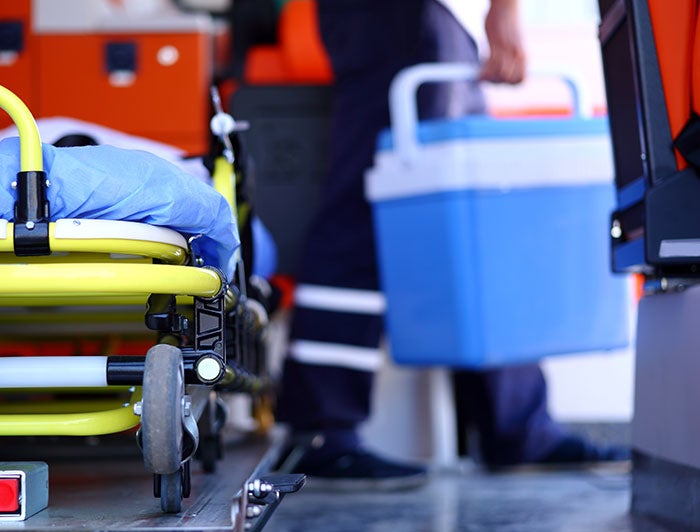A ‘brave adventure’ in Maryland is paving the way for better heart disease outcomes

On Oct. 30, 2023, Lawrence Faucette passed away at the University of Maryland Medical Center. He was 58. In his obituary, his loved ones remembered him for his kindness, along with an assortment of Hawaiian shirts, Tilley-brand hats and bathrobes with hoods. To the medical community, though, Faucette’s life is notable for what his family deemed his “brave adventure” as the second-ever recipient of a genetically modified pig heart, which kept him alive for nearly six weeks after the transplant. In those six weeks, he participated in physical therapy, spent time with family and played cards with his wife, Ann, before his body rejected the transplanted heart. This experience is expected to improve outcomes for others with heart disease.
Faucette was deemed ineligible for a traditional heart transplant due to his advanced medical conditions including peripheral vascular disease. On Sept. 15, the Food and Drug Administration granted UMMC emergency authorization for the surgery in the hope of extending his life. Five days later, an eight-hour surgery, and two days after that the patient was awake, able to sit in a chair and breathe on his own, and his new heart pumped without help from supportive devices.
Before passing, Faucette achieved significant milestones, including engaging in physical therapy and working toward regaining his ability to walk.
As with the UMMC’s first attempt to implant pig heart in a human recipient in 2022, rigorous infection control measures were carefully followed to help safeguard against known pig pathogens. Genetic and ethical concerns are part of the process, and lessons learned from the first pig-heart transplant were incorporated into this attempt, resulting in extra precautions, new, more sensitive tests for viral DNA, and a search for antibodies against cytomegalovirus, which caused the first transplant recipient’s heart to fail.
Through it all, the patient came first; when Faucette passed he was surrounded by his medical team.
“Mr. Faucette’s last wish was for us to make the most of what we have learned from our experience so others may be guaranteed a chance for a new heart when a human organ is unavailable,” said Bartley Griffith, M.D., who performed the surgery. “We will miss him tremendously.”

